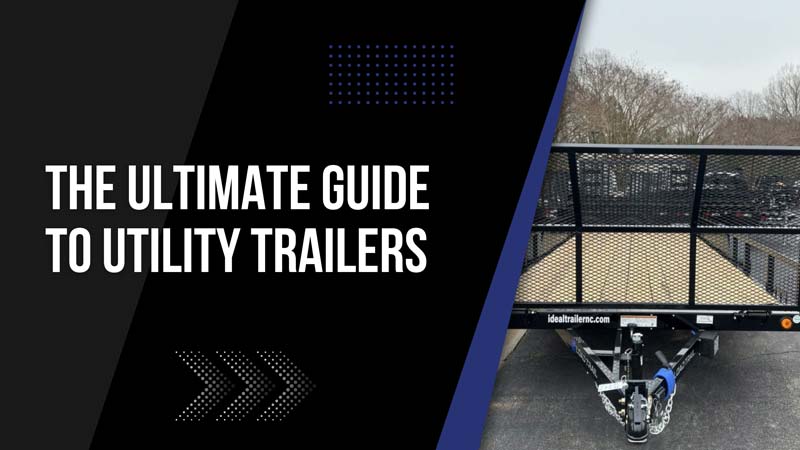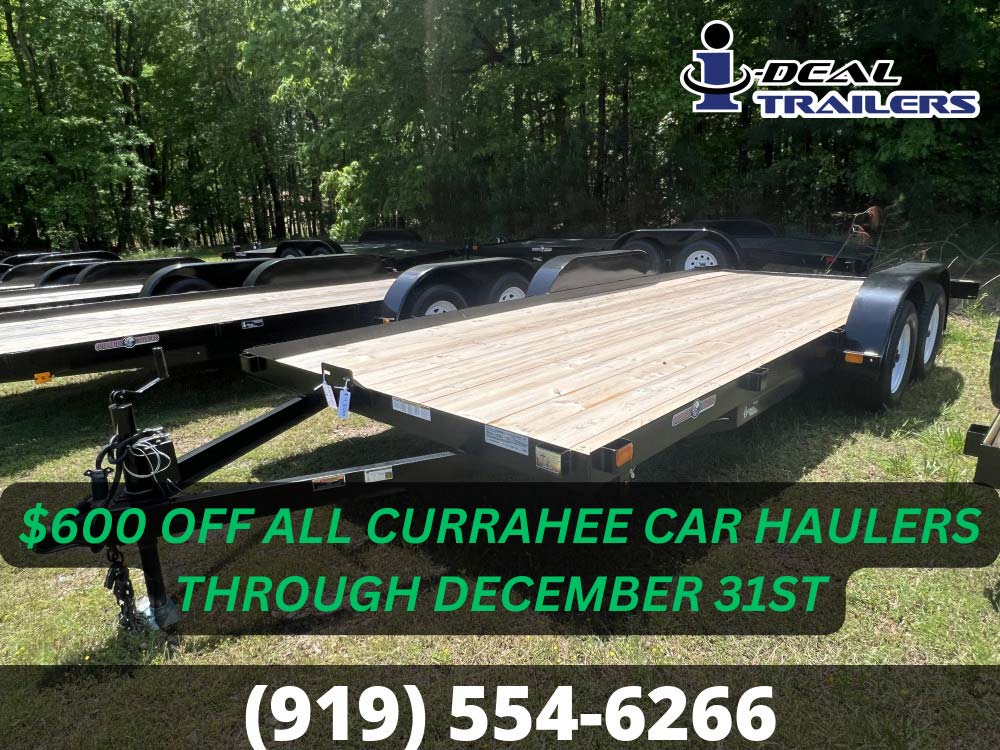
Utility trailers are designed to offer an open, versatile space that can accommodate a wide variety of cargo, making them a popular choice among homeowners, businesses, and outdoor enthusiasts. They are typically characterized by their open and flat deck, lightweight construction, and various customizable features. The adaptability of utility trailers makes them suitable for both personal and professional use, providing an affordable and reliable solution for transporting items such as landscaping equipment, furniture, ATVs, construction materials, and more.
Before diving into the world of utility trailers, it's crucial to understand the key factors that should guide your decision-making process. These include the type and size of the trailer, its weight capacity, ease of loading and unloading, available features, and durability. By considering these aspects, along with your specific hauling requirements and preferences, you can effectively narrow down your options and find the perfect utility trailer tailored to your needs.
Exploring the Various Types of Utility Trailers
-
Open Utility Trailers
Open utility trailers are the most common and versatile option available. They typically feature a flat, open deck with a railing around the perimeter to facilitate secure loading and tie-down spots for various items. They are ideal for transporting larger or bulky cargo, such as furniture, construction materials, and landscaping equipment, and have a relatively lightweight design.
-
Single-Axle Utility Trailers
Single-axle utility trailers are great for small hauling tasks, such as transporting ATVs, motorcycles, or lawn equipment. They are portable, simple to maneuver, and suitable for towing by numerous vehicles.
-
Tandem Axle Utility Trailers
Tandem-axle utility trailers come with two axles, providing greater weight capacity and increased stability on the road compared to single-axle models. This type of trailer is ideal for hauling heavier loads or larger equipment, such as farm machinery or multiple recreational vehicles.
-
Landscape and Utility Hybrid Trailers
These trailers combine the features of both landscape and utility trailers, offering the best of both worlds. They often include ramp gates for easy loading and unloading of lawn equipment, along with higher side rails and a larger storage capacity for transporting various cargo types.
Choosing the Right Utility Trailer: Key Factors to Consider
-
Size and Weight Capacity
Pay attention to the trailer's dimensions and weight capacity, ensuring it accommodates your hauling needs. Remember your tow vehicle's towing capacity and the trailer's gross vehicle weight rating (GVWR).
-
Ease of Loading and Unloading
Consider how your cargo will be loaded and unloaded onto the trailer. Opt for trailers with features that facilitate the process, such as built-in ramps, drop-down gates, or tilt decks.
-
Available Features and Customization Options
Examine the features and customization options of different utility trailers, such as adjustable tie-down points, railings, or removable sides. This will help you find a trailer tailored to your specific requirements and preferences.
-
Durability and Build Quality
Invest in a utility trailer built with high-quality materials and exceptional craftsmanship. Look for features such as heavy-duty steel frames, rust-resistant coatings, and reinforced axles, which contribute to longevity and reliability.
Utility Trailer Maintenance and Safety Tips
-
Regular Inspections and Maintenance
Check your utility trailer regularly for signs of wear, damage, or required maintenance. This includes inspecting tires for wear and proper inflation, checking the frame and axles for rust and cracks, and ensuring lights and electrical components function correctly.
-
Properly Secure Your Cargo
Ensure your cargo is securely fastened to the trailer with appropriate tie-downs to prevent it from shifting during travel. Distribute the weight of your cargo evenly across the trailer to maintain balance and stability.
-
Keep an Eye on Weight Distribution
Load your trailer properly, with heavier items placed closer to the axle(s) and lighter items distributed evenly. This will ensure better weight distribution and prevent potential issues while towing.
-
Follow Safe Towing Practices
Practice safe towing by adhering to weight capacities, using safety chains, and maintaining a safe following distance. Get comfortable with your trailer's handling characteristics and be aware of your surroundings while on the road.
Conclusion
Utility trailers offer an incredibly versatile solution for a wide range of hauling needs, making them a valuable investment for both personal and professional use. By considering important factors such as size, weight capacity, loading capabilities, and build quality, along with exploring the various types, features, and applications, you can confidently choose the perfect utility trailer tailored to your specific requirements. Remember to prioritize proper maintenance and safe towing practices to ensure a lasting and secure hauling experience.
At I-Deal Trailers, our team of experts is committed to helping you navigate the utility trailer market and find the ideal solution for your unique needs. Please don't hesitate to contact us for any assistance, guidance, or information necessary to make a well-informed decision. Your satisfaction and success on the road are our top priorities.
About Us
Are you looking for a reliable company to buy a trailer for your next project? Look no further than I-Deal Trailers. We are a family-owned and managed business based in Wake Forest, NC. And we have everything you need in terms of trailers, whether it is a utility trailer, a dump trailer, or even a gooseneck trailer. We’ve got you covered.We also help provide financing options to our clients. You can reach us at (919) 554-6266 or fill out our contact form to learn more.

